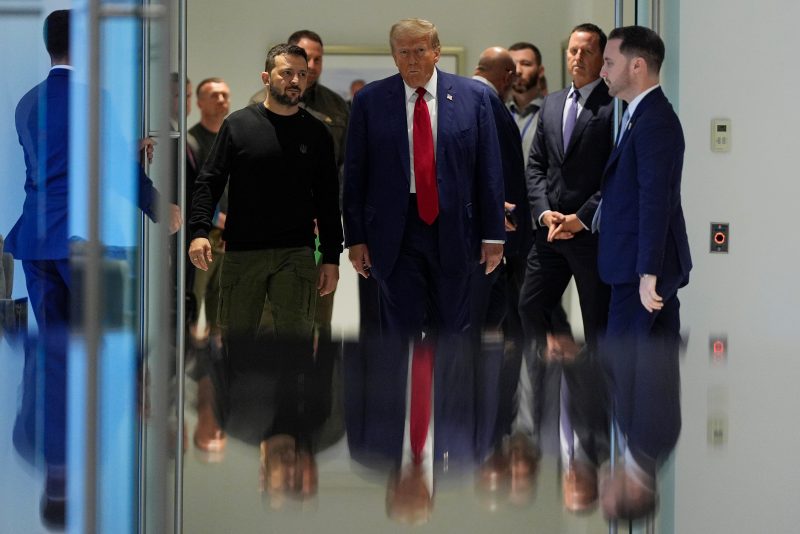In a recent interview, former U.S. President Donald Trump expressed his views on the conflict between Ukraine and Russia. Trump criticized Ukrainian President Volodymyr Zelensky for not preventing the war between the two countries. His statements have once again highlighted the complex dynamics at play in this ongoing conflict.
Trump’s comments come at a time when tensions between Ukraine and Russia have escalated, with both sides engaging in military maneuvers along the border. The conflict has its roots in historical and geopolitical aspects, but the recent developments have brought the issue back into the spotlight.
It is essential to understand the context of Trump’s remarks. During his presidency, Trump maintained a somewhat controversial stance on Russia. He sought to establish friendly relations with Russian President Vladimir Putin, which elicited mixed reactions both domestically and internationally. Trump’s approach to Russia often drew criticism from his political opponents, who accused him of being too lenient on the Russian government.
In his recent statements, Trump implied that Zelensky should have taken measures to prevent the conflict with Russia from escalating. This perspective raises questions about the responsibilities of world leaders in managing geopolitical crises effectively. Zelensky, a former comedian turned politician, has been navigating a challenging political landscape since assuming office. His leadership during the conflict with Russia has garnered both support and criticism from various quarters.
The conflict between Ukraine and Russia is not a recent development but has deep historical roots. The annexation of Crimea by Russia in 2014 and the ongoing conflict in Eastern Ukraine have exacerbated tensions between the two countries. The situation is further complicated by the involvement of Western powers, including the United States and European Union, who support Ukraine in its standoff against Russia.
The war in Ukraine has resulted in a significant humanitarian crisis, with thousands of lives lost and millions displaced from their homes. The conflict has also strained diplomatic relations between Russia and the West, leading to sanctions and other punitive measures.
Trump’s statements on the Ukraine-Russia conflict serve as a reminder of the delicate balancing act world leaders must perform when dealing with complex international issues. The role of diplomacy, dialogue, and strategic decision-making cannot be understated in resolving conflicts and preventing further escalation of crises.
As the conflict between Ukraine and Russia continues to unfold, the importance of diplomatic efforts and international cooperation cannot be emphasized enough. The need for constructive engagement and peaceful resolutions to conflicts remains paramount in today’s global landscape. It is crucial for leaders to demonstrate wisdom, foresight, and a commitment to finding solutions that promote peace and stability in regions plagued by conflict.

